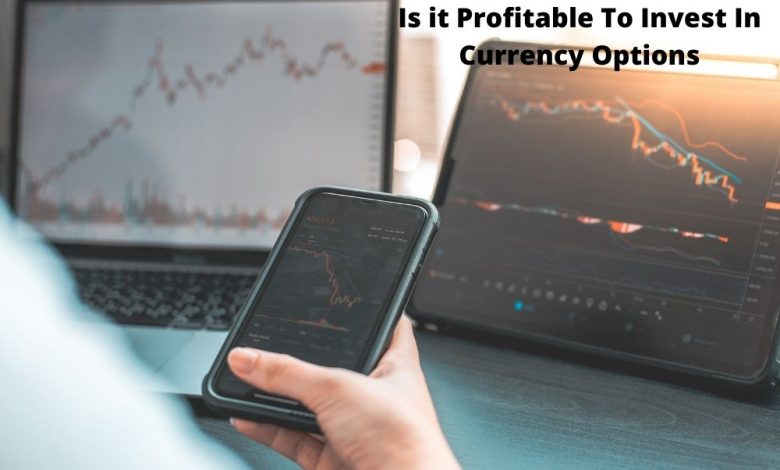
Forex market is more or less similar to other major markets. It too has numerous active derivatives markets that use currency pairs as the underlying security. The value of derivatives determined by selecting a pricing model from several market-derived parameters. One of the oldest and largest derivative classes in the foreign exchange market is FX or currency options. These currency options usually traded OTC or Over the Counter and on some stock and futures exchanges. Even foreign options trading reaches retail traders through various online trading platforms.
The currency options market has its own over the counter brokerage firms, which are different from the normal foreign exchange market brokers. This market also generates a relatively larger daily turnover and is one of the most liquid financial derivatives markets globally.
What are Currency Options?
The other name of forex options is currency options which is an agreement that provides the purchaser with the right to sell and purchase specific currency at a fixed exchange rate before or on a particular date. But, unlike futures here the traders are not obliged to buy or sell certain forex pairs. Instead, the seller is paid the premium amount for this right.
Mainly traders or market speculators use currency options to hedge their trading position against the unfavorable price shifts in exchange rates. Thus, it makes this option popular among traders.
The value of currencies varies depending on several situations such as political developments, economic growth, bank policies, central policies and several others. These changes influence both exporters and importers, whose profit lies on the considerable extent of currency price. Thus, to protect against these sudden changes, many traders use derivatives instruments such as future and currency options. Exporters and importers are not the only ones who trade in these instruments. Active market players also participate here to earn the maximum amount for price movements.
Essential terminologies of currency options
Before trading currency options, you require to know several related terminologies:
1) Strike price: The predefined price of options agreement on which you can either sell or purchase the agreement before or at the expiry date.
2) Expiry date: It is when you need to settle your currency option contract. But both parties can close it before the arrival of the expiry date.
3) Premium amount: It is an amount that the seller gets from the holder to take on the responsibility to sell or purchase the underlying security.
4) Implied volatility: In a currency options contract, the implied volatility measures intended risk concerning the value of the underlying market. The implied volatility influences the price of an option contract.
5) In the money: When the trader exercise options contract for profit then it is in the money
6) Money: The currency option agreement is said to be at the money when the underlying market price is similar to strike price. It means that it could be worthless or expire with value.
7) Out of the money: When a trader cannot exercise the currency agreement for a profit, it is said to be out of money.
Types of Currency Options
There are two major types of currency options, puts and calls.
Call options:
This option allows traders to buy an underlying security at a certain price (known as the sticker price) for an interval. Remember, it does not oblige the trader. If the stock fails to fulfil the strike price on or before the expiration date, the option automatically expires and becomes worthless. Traders purchase a call option when they realize that an underlying asset’s price will surge in the future. Similarly, they decide to sell a call option when they think that the share price will decline. The other name of selling an option is writing an option.
Put options:
This option allows traders to sell an underlying security at a certain price (also known as the strike price). The put option’s writer or seller is restricted to purchase the share at a given strike price. Traders can use this put option anytime but before the expiration date of the option. Trader’s purchase put options if they think that the underlying share price will decline. Similarity traders sell put options if they think that an underlying share price will surge in the future. Put purchasers (those who hold for long) are either insurance purchasers who want to secure their long trading position or speculative purchasers searching for leverage.
Put sellers hold the trading options for a short interval anticipating the financial market to rise or stay stable. For these traders, the worst-case scenario arises when the market turns downward. The maximum gain is confined to the put premium amount received. The is achieved when an underlying asset’s value is above the strike price (of an option) at expiration. For the uncovered put sellers, the maximum loss is unlimited.
How to Trade Currency Options?
You require a suitable broker and an online trading account to trade currency options. The steps for opening an online trading account with the broker is more or less the same for every brokerage firm.
1) Visit the official site of the broker. But, beware. Check the URL of the website properly to avoid any type of online scam.
2) Sign up with the broker, which will require your name, last name, surname, email id and phone number.
3) Enter the OTP number for verification.
4) Now, upload the required documents, including address proof, identity proof and financial and banking statements not older than six months.
5) Choose the trade you wish to pursue and deposit an amount for the same.
6) After that, you can start trading.
You can opt for a demo trading account if you are a novice. It is free and allows you to practice trading before starting real market trading. One such broker offering a demo trading account is investFw. The minimum deposit to start trading with the broker is $250.
The Bottom Line
The currency market is the largest volume market and trading currency option allows you to hedge your trading position from sudden market shifts. However, to become a successful trader, you require a strong foundation about market fundamentals. ROinvesting provides various courses, articles, videos and webinars to serve the purpose. Visit the broker’s site to know more about the firm and its services.
Frequently asked questions:
Q1) What are currency options?
It is an agreement that gives right (not obliged) to the purchaser to sell and purchase specific currency at a fixed exchange rate before or on a particular date.
Q2) What is a strike price?
The predefined price of options agreement on which you can either sell or purchase the agreement (before or at) the expiry date.





